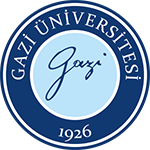ABSTRACT
Conclusions:
Our results suggest that flexible URS is a safe and effective minimally invasive treatment modality for renal stones in preschool children.
Results:
A total of 32 lithotripsy procedures to treat 34 stones were performed in 28 children 18 ( 64%) males and 10 (36 %) females; 22 (78.5%) single and 6(21.5%) multiple stones; median age, 45,8±9,36 months (10-72). Stones were located in the kidney in 21 cases (75%), the upper ureter in 7(25%). Mean stone size was 12,07-+1,74(9-15) mm. Four (14.2%) of these patients also had bladder stone accompanying it. The stones of these patients were also fragmented using laser with flexible URS. Anesthesia duration was 26-105 min (mean, 59,64±22,39). In fourteen patients with narrow ureteral orifices urethral JJ stents were placed firstly and flexible URS were done easily after 2 weeks. We did not use fluoroscopy; thus radiation free treatment was reached all patients. Follow-up ranged from 2 months to 3 years (mean, 24 months). Complete stone clearance was achieved at the end of the procedure in 26 (92.8%) patients. No major complications were encountered during or after the procedure, although 2 minor complications ( 7.1%) occurred. The mean duration of hospitalization was 2,21±0,87 days (range, 1-4 days). Recurrence of urolithiasis was a long-term complication in two patients; These cases were subsequently treated smilarly with flexible URS. No other long-term complications were revealed by ultrasonography.
Patients and Methods:
The records of 28 patients ≤6 years old who underwent endoscopic procedures for treatment of stones at the our hospital from 2013 to 2016 were reviewed retrospectively. In the treatment of renal and upper ureteral stones, laser lithotripsy was used with flexible ureterorenoscope (URS) without ureteral dilatation. The information recorded included patient demographics, stone size and location, operative technique and postoperative outcomes.
Aim:
To present the outcomes of retrograde intrarenal surgery (RIRS) and laser lithotripsy for the treatment of calculi of preschool age children.



